Filters
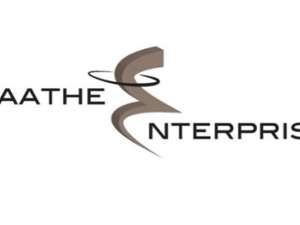
Career Service Station
Are you looking for a new job or a career change? Career Service Station can help job seekers of all experience levels put their b... [+More]
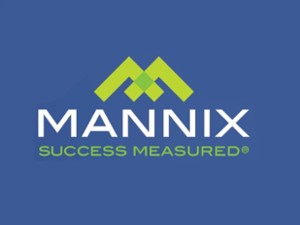
Mannix Marketing
Mannix Marketing, Inc. provides AI, digital marketing, website design and development, SEO, PPC, social media, & related services ... [+More]
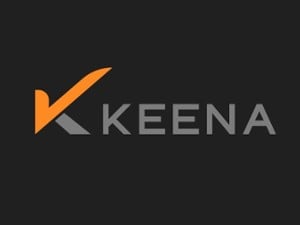
KEENA PEO Services
Queensbury, NY
KEENA PEO Services in Queensbury, NY supports small and mid-sized businesses with comprehensive HR solutions, payroll, employee be... [+More]

TEMPO Business Training
Improve your business with the help of TEMPO Business Training by Braathe Enterprises. TEMPO offers a series of customized, profes... [+More]

CIChecked
Latham, NY
Find employees that you can trust with professional background checks conducted by CIChecked in Latham. They are trusted by over 1... [+More]

AEC Solar
Albany, NY
AEC Solar provides state-of-the-art solar systems for homes and businesses in the Capital Region, North Country, and Adirondack ar... [+More]
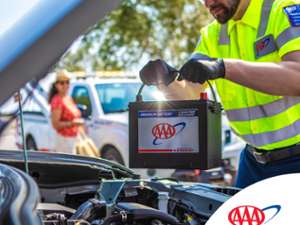
AAA Hudson Valley
Albany, NY
AAA Hudson Valley provides Members access to 24/7 Emergency Roadside Assistance, nationwide discounts, personal lines insurance, a... [+More]

Baker Public Relations, Inc.
Albany, NY
Located in Albany, New York and Pittsburgh, Pennsylvania, Baker Public Relations, a New York State Certified Women-Owned Business ... [+More]

John C Mannix, Jr. Attorney & Counselor at Law
Saratoga Springs, NY
John C. Mannix, Jr. is a practicing lawyer in Saratoga Springs, NY with over 25 years of experience in trusts and estates, estate ... [+More]

Nine Pin Ciderworks LLC
Albany, NY
Nine Pin is New York's first farm cidery and our mission is simple: we support New York agriculture by producing quality craft cid... [+More]

JAG GROUP LLC
Wilton, NY
JAG is a full-service commercial/industrial contractor with over 30 years of experience. Built on trust, integrity, and craftsmans... [+More]

Albany.com
Albany.com is your premier local resource for everything you need to know about what's happening in New York's Capital Region. Fin... [+More]

CliftonPark.com
CliftonPark.com is the best online guide to planning a fun-filled day in the Clifton Park area. We offer information on a wide ran... [+More]

Paul Giannetti Attorney At Law
Albany, NY
After working for a small private law firm for 5 years, Mr. Giannetti started his own practice in 1988. He has represented hundred... [+More]

Deb Best Practices - HR 911 - All Employers / Sectors / NYS-Certified WBE
Albany, NY
Need help with complex employee issues, COVID compliance, or other HR related needs for your business? Debra J. M. Best, SPHR, SHR... [+More]
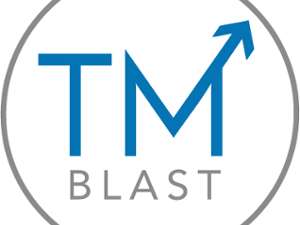
TM Blast LLC
Ballston Spa, NY
TM Blast provides local, national, and hourly SEO services. If you're seeking increased traffic, leads, phone calls, and conversio... [+More]

StoredTech
StoredTech offers a variety of computer support for all sizes of businesses, including managed IT services, cybersecurity, cloud c... [+More]

Supley Law, PLLC
Albany, NY
Supley Law has experience handling all types of personal injury cases and we are ready to put our knowledge and resources to work ... [+More]

Working Pictures, Inc.
Troy, NY
The team at Working Pictures specializes in high quality broadcast and corporate video production. We produce creative, effective... [+More]
O'Connell & Aronowitz
Albany, NY
We provide our clients with representation and services in a broad range of disciplines and practice areas. O'Connell and Aronowit... [+More]
Commercial Coverage, Inc.
Ballston Spa, NY
Pittsfield Economic Development Authority
Pittsfield, MA
Audio-Video Corporation
Albany, NY
Kurzon Architects
Albany, NY
Buzz Media Solutions
Schenectady, NY
Featherstonhaugh, Wiley & Clyne, LLP
Albany, NY
Feathersgonhaugh, Wiley & Clyne has few rivals in the field of governmental relations and has the expertise you need to help you r... [+More]
EYP Architecture & Engineering, PC
Albany, NY
The Creative Advantage
Schenectady, NY
Bel-Aire Vending II
Schenectady, NY
Delain Law Office, PLLC
Clifton Park, NY
Delain Law Office, located in Clifton Park NY, specializes in intellectual property and business law, including patent, trademark,... [+More]
Capital Financial Services, LLC
Glenville, NY
Capital Financial Services, LLC is a full service financial planning and investment management firm. We've been helping clients fo... [+More]
e3communications, Inc.
Albany, NY
Anchor Agency, Inc.
Albany, NY
3 Visual Media
Scotia, NY
4Cite
Albany, NY
Goldberger & Kremer
Albany, NY
Goldberger & Kremer is an employment law firm based in Albany and represents employers in both the public and private sectors. Pra... [+More]
Upside Collective, Inc.
Albany, NY
Ferro Consultants
Rensselaer, NY
Sandler Training
Albany, NY
Sandler Training helps Capital Region companies achieve new levels of success through sales, management, and leadership training.... [+More]
Profitable Speech, LLC
Profitable Speech, LLC provides training and consultation for: public speaking, presentation skills, interviewing, voice coaching,... [+More]
CMA Consulting, Inc.
Latham, NY
Informz, Inc.
Saratoga Springs, NY
Next Wave, Inc.
Albany, NY
Business Partners Forms & Systems, Inc.
Albany, NY
Excelsior College
Albany, NY
Hibu
King of Prussia, PA
The online yellowbook; what do you want to find, and we'll find it for you.... [+More]
Positive Energy NY
Fort Ann, NY
Positive Energy NY works with developers and EPCs on large scale commercial and utility solar projects. They can provide start-to-... [+More]
The Vincelette Law Firm
Albany, NY
The Vincelette Law Firm has concentrated its practice in the areas of municipal tax foreclosure and tax certiorari. The firm's att... [+More]
Verizon Wireless
Albany, NY
STS Steel, Inc.
Schenectady, NY
ATC
Schenectady, NY
Schenectady Hardware & Electric
Schenectady, NY
Catholic Charities of the Diocese of Albany
Albany, NY
Computer Professionals International
Schenectady, NY
Plan, Design, Implement, Manage and Support your Computers and Network... [+More]
The Art of Relating: Pathways to Expression.
Join Relationship Expert and certified coach Joëlle Lydon for a nourishing weekend of deep Relationship coaching and art. Create a... [+More]
The Wagoner Firm, PLLC
Albany, NY
The Wagoner Firm has a trademarked approach and offers an in-house counsel experience, plus individual practice areas, so you can ... [+More]
Mission Possible Investigations, LLC
Albany, NY
Mission Possible Investigations, LLC is a leading private investigation firm with headquarters in Albany, NY. They offer full serv... [+More]
Arnoff Moving & Storage, Inc.
Albany, NY
Since 1924 providing the finest moving & storage services locally & worldwide for households & businesses. Warehousing, crating, d... [+More]
Janitronics, Inc.
Albany, NY
Janitronics provides Facilities Services to office buildings, schools, colleges, health-related facilities, industrial plants, sho... [+More]
Tech Valley Office Interiors, Inc.
Cohoes, New York
TVOI is a full service office furniture dealership that offers a 6,500 sq. ft. showroom offering interior design, space planning a... [+More]
Workforce Development Institute
Troy, NY
Gould Innovations, Inc.
Albany, NY
Gould Innovations is an Information Technology solutions provider. Approach us with your most difficult problem and we will design... [+More]
SCO Janitorial
Albany, NY
SJA & Associates
Latham, NY
McKinney & MacDonald Architects, LLC
Latham, NY
Fleming Physical Therapy Consultant PC
Schenectady, NY
Welcome Wagon Niskayuna
Latham, NY
Towne, Ryan & Partners, P.C.
Albany, NY
Towne, Ryan & Partners, P.C. believes that great service is a crucial part of legal representation. Choose one of our six offices ... [+More]
SAGE Computer Associates
Albany, NY
SAGE Computer Associates has been providing professional IT Support for businesses in and around Albany, New York since 1983.... [+More]
Casa Visco Finer Foods
Schenectady, NY
CHA, Inc.
Albany, NY
Matthew's Signs
Schenectady, NY
Business Opportunities Management Consulting
Rensselaer, NY
City of Schenectady IDA
Schenectady, NY
Acme Business Systems
Schenectady, NY
Gatherer's Gourmet Granola
Schenectady, NY
EGLahr PR & Media
At EGLahr PR & Media, we guide you through successful strategic planning, website development and crisis management. We build tail... [+More]
Tech Valley Continuity LLC
Latham, NY
Turning potential disasters into an annoyance(R). We provide business continuity planning / disaster recovery planning assistance ... [+More]
Generations Planning Group, LLC
Albany, NY
Mediation Matters
Albany, NY
Mediation Matters has three offices throughout the Capital Region. Services for adults and children focus on the skills needed to ... [+More]
MicroKnowledge, Inc.
Latham, NY
For 30+ years, MicroKnowledge has provided high-quality training, consulting and documentation services to businesses of all sizes... [+More]
The Chazen Companies
Troy, NY
Chazen is a leading multi-disciplinary professional service firm with over 60 years of experience.... [+More]
Amsure, a Division of ATCFSI
Albany, NY
Staples the Office Superstore
Rotterdam, NY
Aeon Nexus
Albany, NY
Nest Egg Financial Planners
Waterford, NY
Vicarious Visions, Inc.
Albany, NY
Parisi, Coan & Saccocio, PLLC
Schenectady, NY
Parisi, Coan & Saccocio is a client-focused law firm with more than 65 years of collective experience in state and federal court. ... [+More]
Blue Slate, an EXL Company
Albany, NY
Schenectady County IDA
Schenectady, NY
United Building Maintenance Inc.
United Building Maintenance is a commercial and residential cleaning company providing exceptional service to the Capital District... [+More]
CheckWise Payroll, LLC
Albany, NY
CheckWise Payroll is your company's solution for your payroll, tax management, human resources, and timekeeping needs. Providing c... [+More]
docStar
Schenectady, NY
Mohawk Global Logistics
Albany, NY
Acube Consulting, Inc.
Albany, NY
HMS Agency, Inc.
Albany, NY
HMS Agency Inc. is a family-owned and operated full service insurance agency offering a complete line of insurance coverages and s... [+More]
Homeless & Travelers Aid Society
Albany, NY
Artcraft Chemicals Inc
Schenectady, Ne
GTM Payroll Services, Inc.
Clifton Park, NY
GTM has offices in Clifton Park and Glens Falls NY. The established payroll industry leader offers flexible, affordable payroll se... [+More]
GDI Services Inc.
We seamlessly deliver our services within various building environments including commercial offices, industrial and manufacturing... [+More]
AlfaVizion, Inc.
Glenville, NY
Dimension Fabricators, Inc.
Scotia, NY
Hodgson Russ LLP
Saratoga Springs, NY
Hodgson Russ LLP serves the Capital Region from its Saratoga Springs and Albany NY offices. The firm's attorneys specialize in mor... [+More]
Masto Public Relations, Inc.
Albany, NY
Girvin & Ferlazzo, P.C.
Albany, NY
The full-service general practice law firm of Girvin & Ferlazzo is based in Albany NY. Its team of attorneys concentrates in perso... [+More]
Legacy Title Services
Halfmoon, NY
Flagstone Management Services, LLC
Hadley, NY
Digital First Media
Pittsfield, MA
Outspoken Media
Troy, NY
Merchnow LLC
Albany, NY
Hodgson Russ LLP
Albany, NY
Hodgson Russ LLP has six offices, including one right here in Albany. The firm offers legal services to individuals, private and p... [+More]
Satch Sales, Inc.
Menands, NY
Allegra Print & Imaging
Schenectady, NY
We at Allegra help our clients shine thru their printed communications! Full color printing, graphs design and high speed copying ... [+More]
Neilsen Associates
Albany, NY
New York Press & Graphics, Inc.
Albany, NY
Shipp Financial Services, Inc.
Albany, NY
Momentive Performance Materials
Waterford, NY
Napierski, VanDenburgh, Napierski & O'Connor, LLP
Albany, NY
Napierski, VanDenburgh, Napierski & O'Connor, located in Albany NY, specializes in eight practice areas: medical malpractice defen... [+More]
Logical Net Corporation
Schenectady, NY
ManuMod, LLC
Schenectady, NY
Adjusters International
Albany, NY
Ackroyd Metal Fabricators Inc.
Albany, NY
Carter Conboy
Albany, NY
Since 1920, Carter Conboy has provided powerful and effective litigation and transactional assistance to its clients. Practice are... [+More]
John Keal Music Co., Inc.
Albany, NY
Albany Metal Fabrication Holdings, Inc.
Albany, NY
Albany Broadcasting Company
Latham, NY
Wolberg Electrical Supply Co., Inc.
Schenectady, NY
Baptist Health System
Scotia, NY
Baptist Health System offers a variety of services to help those needing short- and long-term care. In addition to its nursing and... [+More]
Combined Insurance
Latham, NY
Franklin Hospitality
Troy, NY
The Franklin Plaza, Franklin Terrace and Best Western Plus Franklin Square Inn make up the Franklin Hospitality Group. Book your w... [+More]
Zing-A-Gram, Inc.
Delmar, NY
Davies Office, Inc.
Albany, NY
Cresa Albany
Albany, NY
Let Cresa Albany take care of all the details of leasing, buying, or upgrading your office space so you don't have to!... [+More]
MTI Mechanical Technology, Incorporated
Albany, NY
POSTMKTG
Schenectady, NY
Physical Therapy Associates of Schenectady, PC
Schenectady, NY
Capovani Brothers Inc.
Glenville, NY
Lombardi, Walsh, Davenport & Amodeo, PC
Albany, NY
Based in Albany NY, the law firm of Lombardi, Walsh, Davenport, and Amodeo serves the Capital Region in the following practice are... [+More]
La Salle School
Albany, NY
Peter M. Pryor Associates, Inc.
Albany, NY
Cap Capello Entertainment
Rexford, NY
Media Well Done
Schenectady, NY
J.H. Bennett, Inc.
Watervliet, NY
Cooley Group
Glenville, NY
Thompson & Johnson Equipment Co., Inc.
Schenectady, NY
We have been providing forklift and material handling equipment solutions to New York State since 1954. We sell, rent, and service... [+More]
High Voltage Electric Service, Inc.
Albany, NY
Fort Orange Pharmaceutical Consulting
- USP-compendial monpograph preparation and submission - Expert witness- pharmaceutical-analytical - Quality operating systems a... [+More]
Gilroy, Kernan & Gilroy, Inc.
New Hartford, NY
Bay State Elevator Company, Inc.
Albany, NY
Ambient Environmental, Inc.
Albany, NY
Adworkshop
Albany, NY
Albany Flood Control
Albany, NY
Frost & Kavanaugh, P.C.
Troy, NY
Frost & Kavanaugh, P.C. is made up of a team of experienced trial lawyers who represent clients in the Capital District and throug... [+More]
IS Consilium, Inc.
Albany, NY
Prime Self Storage
Saratoga Springs, NY
Griffith Dardanelli, Architects, PC
Schenectady, NY
Marvin and Company, P.C.
Latham, NY
Marvin and Company is a Latham and Queensbury New York firm of certified public accountants and consultants that has been providin... [+More]
Precision Industrial Maintenance, Inc.
Schenectady, NY
Cullen and Dykman, LLP
Albany, NY
Cullen and Dykman LLP has eight offices in New York, New Jersey, and Washington D.C. The firm has been serving clients since 1850,... [+More]
Mirabito Energy Products
Schenectady, NY
TEL Technology Center, America LLC
Albany, NY
Sanico, Inc.
Binghamton, NY
Reilly & Son Funeral Home. Inc.
Albany, NY
LaMarche Safranko Law, PLLC
Clifton Park, NY
At LaMarche Safranko Law, we give you the confidence of knowing what to expect during a stressful, uncertain time. You'll get the ... [+More]
E. Stewart Jones Hacker Murphy, LLC
Troy, NY
With three offices throughout the Capital Region, E. Stewart Jones Hacker Murphy specializes in personal injury, commercial disput... [+More]
The Woodward Co.
Albany, NY
Stripes Sign Shop
Watervliet, NY
Center for Disability Services
Albany, NY
Center for Disability Services is a 80 year old non-profit which provides education, health care,dental and therapy, job training,... [+More]
Companies of J. J. Young
Troy, NY
Companies of J.J. Young helps Capital Region employers fill temporary and permanent job openings by utilizing its database of high... [+More]
Verizon Wireless - Latham
Latham, NY
Northeastern Environmental Technologies Corp.
Ballston Spa, NY
Red-Kap Sales, Inc.
Schenectady, NY
Kincaid Network Solutions
Ballston Spa, NY
Kincaid Network Solutions is a tech driven company that offers IT services to businesses. Kincaid specializes in using cost effe... [+More]
Ebabil Photo & Video
Albany, NY
Choose Ebabil Photo & Video for your professional photography and videography needs. Artistic photography and 4K cinematic video s... [+More]
Tech Valley Center of Gravity
Troy, NY
Law Office of Ken McCauley
Albany, NY
The Law Office of Ken McCauley represents Albany and the Capital Region in traffic law cases, including violations related to spee... [+More]
Daly Funeral Home
Schenectady, NY
The Jamison Group
Clifton Park, NY
Pierro, Connor & Strauss, LLC
Latham, NY
Nationally recognized Estate Planning & Elder Law Firm serving clients throughout the Capital Region. The firm focuses on Wills, T... [+More]
Northwestern Mutual
Latham, NY
Gt Gith Communication Services
Albany, NY
Jan-Pro of the Capital District
Albany, NY
Clearly Yours
Latham, NY
Come shop our wide range of personalized gifts for weddings, anniversaries,birthdays, graduations, and baby births. Vera Bradley, ... [+More]
Iron Mountain
Feura Bush, NY
Hinckley Allen
Albany, NY
Hinckley Allen has six offices in the northeastern US, including one right here in Albany. The firm specializes in five areas: con... [+More]
New York Life Insurance Company
Latham, NY
I am a licensed agent with New York Life and I specialize in asset protection, retirement planning, and tax free savings programs.... [+More]
Gallagher Spataro Insurance
Albany, NY
My Place to Play
Rotterdam, NY
PAL Turbine Services, LLC
Clifton Park, NY
Lemery Greisler, LLC
Albany, NY
With law offices in Albany and Saratoga Springs, Lemery Greisler offers expert counsel to businesses and investors of all sizes. P... [+More]
LinguaLinx, Inc.
Troy, NY
Interactive Media Consulting, LLC
Saratoga Springs, NY
Priority One Networks, LLC
Schenectady, NY
PriorityOne Networks, is a leading provider of Hosted Phone Systems (Hosted PBX) and Voice over Internet Protocol (VoIP) services ... [+More]
Paychex
Albany, NY
Paychex offers a wide range of payroll solutions, plus HR services, 401(k) plans, insurance, and other employee benefits.... [+More]
Aerotek
Latham, NY
Aerotek offers staffing services, workforce management solutions, and more in its effort to bring great people and great organizat... [+More]
Wallwood Design & Automation
Glenmont, NY
Solar Universe UNY
Albany, NY
Fort Orange Press, Inc.
Albany, NY
Edgeco Environmental, Inc.
Cohoes, NY
Garnet River, LLC
Saratoga Springs, NY
Strategic Power Systems, Inc.
Schenectady, NY
Community Care Physicians, PC
Latham, NY
Carver Sand & Gravel, LLC
Altamont, NY
Schwartz Heslin Group, Inc.
Latham, NY
Creative Marketing Concepts of the Capital Region, LLC
Latham, NY
An integrated marketing firm offering products and services in the "five P's of marketing," committed to bringing you the best val... [+More]
Tripi Detective Agency, LLC
Albany, NY
Private detective services for attorneys, insurance agencies, small businesses, corporations, and the private sector, based out of... [+More]
Bishop House Consulting, Inc.
Clifton Park, NY
We build great leaders and teams through leadership development training programs, individualized leader & executive coaching and ... [+More]
Taconic
Hudson, NY
Ginsberg's Foods
Hudson, NY
Piller TSC Blower Corporation
Schenectady, NY
Autotask Corporation
East Greenbush, NY
The Brault Agency - Allstate Insurance
Scotia, NY
Creative Materials Corporation
Albany, NY
Voorheesville Public Library
Voorheesville, NY
Deep Blue Communications, LLC
Troy, NY
If your goal is to ensure your guests and consumers are satisfied, then Deep Blue Communications is your choice for WiFi solutions... [+More]
Applied Robotics, Inc.
Glenville, NY
HP Consulting, LLC
Voorheesville, NY
Scautub Agency, LLC
Scotia, NY
Performance Matters, Inc.
Clifton Park, NY
Performance Matters, Inc. is on Foxwood Drive South in Clifton Park.... [+More]
The The Shaker Group, Inc.
Latham, NY
Albany based transprotation/logistics company offering local or long distance trucking, domestic and international air freight for... [+More]
TAPSNAP Phototainment
Malta, NY
Center for Economic Growth, Inc.
Albany, NY
Bird & Associates, Inc.
North Bennington, VT
Sunier Design
Sunier Design strives to create better design for people by developing cutting edge professional designs. Our goal is to provide c... [+More]
Robert Schalit, Freelance Copywriter
Schenectady, NY
Auto/Mate Dealership Systems
Albany, NY
Ambrose Electric
Latham, NY
Ambrose Electric is a licensed electrical contractor providing both commercial and residential services to Capital District custom... [+More]
Gavant Software
Troy, NY
Gavant Software is a full service provider of custom web and mobile technology solutions. Our clients leverage us to streamline wo... [+More]
Real Media Solutions
Cohoes, NY
Executive Cleaning Services of Albany, Inc.
Albany, NY
Harmony Group Capital, LLC
Albany, NY
Educational Vistas, Inc.
Schenectady, NY
Benetech
North Greenbush, NY
Benetech has more than 30 years of experience in employee benefit solutions, compliance and auditing services, and workforce manag... [+More]
Adirondack Beverages
Scotia, NY
Kouray & Kouray
Schenectady, NY
Kouray & Kouray, a knowledgeable and experienced law firm based in Schenectady, specializes in criminal defense, vehicle and traff... [+More]
William G. Polk, Consultant
Lenox, MA
Liberty Mutual Insurance Personal Sales
Latham, NY
Woodward Connor Gillies & Seleman Architects
Albany, NY
Schaefer Media & Marketing
Albany, NY
Community Development Resources, LLC
Burnt Hills, NY
Up In Your Business
Schenectady, NY
Kinderhook Bank
Kinderhook, NY
Local, trusted, community bank serving the Capital Region with competitive personal and business banking products, services and lo... [+More]
SI Group
Schenectady, NY
Ronco
Latham, NY
Snelling Staffing Services
Albany, NY
Do you need new talent? Are you looking for a new opportunity? No one knows Albany like Snelling. Find your new hire or next emplo... [+More]
Homestead Funding Corp.
Albany, NY
Creighton Manning Engineering, LLP
Albany, NY
Christopher Sheehan
Duanesburg, NY
Harley Rendezvous Classic, Inc.
Pattersonville, NY
Horizon Bradco
Schenectady, NY
National Business Equipment & Supply, LLC
Albany, NY
National Business Equipment & Supply, LLC is the area's leading Kyocera-Mita dealer. With a focus on efficiency and quality, they'... [+More]
Jackson Lewis P.C.
Albany, NY
With over 800 attorneys in major cities throughout the country, including right here in Albany NY, Jackson Lewis P.C. has establis... [+More]
Marlowe & Company Music
Troy, NY
HW Staffing/S&B Staffing
Albany, NY
Naviasky Law Firm, PLLC
Schenectady, NY
Naviasky Law Firm, PLLC. specializes in elder law, estate planning and real estate law, assisting families throughout their life c... [+More]
Porus, Inc.
Watervliet, NY
Northway Residential Services
Newtonville, NY
D2 Media Consultants, Inc.
Schenectady, NY
Streamline Claims Service, Inc.
Clifton Park, NY
SwishData
Warwick, NY
Fisher Masonry, Inc.
Slingerlands, NY
Palmer's Press
Glenville, NY
Scheuermann & Scheuermann, LLP
Albany, NY
Scheuermann & Scheuermann, LLP works with companies of all sizes, from start-ups to large, established businesses. The firm distin... [+More]
Wizer Solutions, Inc.
Clifton Park, NY
All-American Sports Recreation
Albany, NY
Center for Donation and Transplant
Albany, NY
Futia's Famous Pizza Dough
Schenectady, NY
The Compass Company Consultants, LLC
Albany, NY
Gold Purses
Watervliet, NY
Tech Valley Wireless
Menands, NY
Apprenda
Troy, NY
Protective Industrial Products, Inc.
Latham, NY
Protective Industrial Products (PIP) has been providing customers with quality PPE for over 30 years. A global leader in and prote... [+More]
CTDI
Glenville, NY
Filmworks 109, Inc.
Albany, NY
CUSTOMERicity, LLC
Coxsackie, NY
Kelly Services
Albany, NY
Job seekers and employers can count on Kelly Services, with its decades of experience in staffing and related matters.... [+More]
Fingerpaint Marketing, Inc.
Saratoga Springs, NY
Fingerpaint is a strategic and creative advertising agency committed to original thinking and uncommon collaboration. Experienced ... [+More]
Greane Tree Technology
Troy, NY
Located in Troy, NY, but with clients across the region, our firm builds custom web, desktop, database, mobile and enterprise soft... [+More]
Integrated Management & Sales Consulting
Clifton Park, NY
Clifford V. Bard, Jr.
Niskayuna, NY
Capital Home & Business, LLC
Troy, NY
TW&A Construction Management
Schenectady, NY
Park Building Supplies, Inc.
Schenectady, NY
Shutts Agency, Inc.
Schenectady, NY
Oliver & Oliver
Albany, NY
The father-son general practice law firm of Oliver & Oliver specializes in criminal defense, civil rights, employment discriminati... [+More]
Clemente Latham Concrete
Schenectady, NY
Englert, Coffey, McHugh & Fantauzzi, LLP
Schenectady, NY
Since 1965, the firm has provided general civil and criminal practice before all State and Federal courts in areas such as: neglig... [+More]
Barrett Associates
Albany, NY
Toshiba Business Solutions - NY
Latham, NY
Northern Rivers Family Services
Albany, NY
SEI Design Group
Albany, NY
AMRI
Albany, NY
Stragility LLC
Slingerlands, NY
Schenectady Pipe Band Ltd
Albany, NY
WMHT Educational Communications
Troy, NY
Bergmann Associates
Albany, NY
R.F. Peck Co., Inc.
Albany, NY
Bradley Agency, LLC
Albany, NY
An independent insurance agency serving clients throughout NYS since 2002. Experienced, knowledgeable & proactive concerning our c... [+More]
Vantage Management, Inc
Latham, NY
Berkshire Homestyle Magazine
The Magazine of Home and Good Living. Every month since 1989 our readers learn about current trends in our region, about home, gar... [+More]
BBL Hospitality
Albany, NY
S & L Cleaning Service
Schenectady, NY
Kim M. Thurn, Gifts and Events Planning
Niskayuna, NY
Security Plumbing & Heating Supply
Albany, NY
Verizon
Albany, NY
3N Document Destruction, Inc.
Clifton Park, NY
Vision Graphics
Scotia, NY
Rose & Kiernan, Inc.
East Greenbush, NY
Northeast Network Solutions
Albany, NY
Excel Systems, Inc.
Schenectady, NY
Groff NetWorks, LLC
Troy, NY
Tabner, Ryan and Keniry, LLP
Albany, NY
The law firm of Tabner, Ryan & Keniry, LLP is based in Albany NY and specializes in areas like commercial litigation, employment l... [+More]
Gifford Engineering, LLC
Niskayuna, NY
Superior Business Products, Inc.
Schenectady, NY
Superior Business Products is a locally owned full service provider of office products, business furniture, coffee & beverage serv... [+More]
Godfrey Financial Associates, Inc.
Latham, NY
Clare Stevenson Monteau
I deliver programs and tools to enable each and every employee to maximize their impact and value. I help align personal goals and... [+More]
ChannelEyes, LLC
Troy, NY
American Portfolios
Schenectady, NY
Taconic Title Agency LLC
Albany, NY
Perry, Miller & Associates LLC
Albany, NY
Meier Law Firm, PLLC
Latham, NY
The Meier Law Firm concentrates in the areas of estate planning and administration as well as elder law and real estate law, servi... [+More]
A Place for Jazz
Schenectady, NY
Nowak Associates, Inc.
Albany, NY
We provide relevant and distinctive strategic solutions to communications opportunities. Representing clients with substantive mar... [+More]
TCI of New York, LLC
Coeymans, NY
The Heritage Group
Latham, NY
Geovanny Marble & Granite, LLC
Watervliet, NY
Specialized in repair, restoration, kitchen & bath counter tops, bar tops, floor tiles, fire places.... [+More]
GlobalFoundries
Malta, NY
Amy Aldrich Agency
Glenville, NY
Chris' Coffee Service, Inc.
Albany, NY
Towne Decorators
Schenectady, NY
Atlas Private Wealth Management, LLC
Albany, NY
AIG
Latham, NY
Mountain Media
Saratoga Springs, NY
The ultimate search engine friendly shopping cart. For a full service eCommerce solutions with customer service & SEO. website de... [+More]
Bonadio Wealth Advisors, LLC
Albany, NY
FranNet of Hudson Valley
Ridgewood, NJ
South Col Engineering, P.C.
Latham, NY
Magnolia Solar
Albany, NY
Harness the power of the sun with the latest in solar technology. Magnolia Solar's thin film solar sells are lower cost than tradi... [+More]
Saratoga Eagle Sales & Service
Saratoga Springs, NY
The Business Brokerage Group, Inc.
Albany, NY
Slocum Publishing
Albany, NY
TechTransformation LLC
Delmar, NY
Capital Business Advisors, Inc.
Buisness Brokerage, Mergers & Acquisitions, Business Valuation... [+More]
Kasselman Electric Co., Inc.
Albany, NY
R. K. Chase Co., Inc.
Albany, NY
Monolith Solar
Rensselaer, NY
Save on your energy bill by going solar! Monolith Solar installs solar panels on residences and commercial buildings across New Yo... [+More]
Barclay Damon LLP
Albany, NY
Barclay Damon's team of 275 attorneys across 33 specialized practice areas are located in 11 offices strategically located through... [+More]
Kay Nicholas Music Instruction
Albany, NY
Omnis Computers
Schenectady, NY
Gramercy Communications, LLC
Troy, NY
Resource Advantage, Inc.
Melrose, NY
Roemer Wallens Gold & Mineaux LLP
Albany, NY
Roemer Wallens Gold & Mineaux LLP is located in Albany NY and is a resolution-oriented firm. Concentration areas include labor and... [+More]
Mechanical Testing, Inc.
Waterford, NY
A.L. Hofaker Insurance
Albany, NY
Schenectady Access Cable Council Inc., (SACC)
Schenectady, NY
Lang Media, Inc.
Cohoes, NY
Reynolds Engineering/Design, LLC
Niskayuna, NY
Safe Storage of Rotterdam
Schenectady, NY
Newberry Knitting Co.
Schenectady, NY
David H. Keil
Scotia, NY
Tech Valley Title Agency
Troy, NY
Merit
Albany, NY
Spiral Design Studio
Cohoes, NY
Dreyer Boyajian LLP
Albany, NY
Dreyer Boyajian's legal team specializes in personal injury cases with the goal of helping clients recover financially, physically... [+More]
Silverman, Silverman & Seligman
Schenectady, NY
Silverman, Silverman & Seligman has expertise and experience in injury law, and can help you navigate the complex process while ma... [+More]
Kasselman Solar
Albany, NY
Specializing in both residential and commercial solar panel installation, Kasselman Solar helps customers throughout the Capital R... [+More]
The Storage Place LLC
Albany, NY
Preferred IC Consultants
Albany, NY
Timothy Raab & Northern Photo
Albany, NY
PrimePay
Albany, NY
PrimePay offers a variety of payroll and HR services, including time clocking, online payroll, compliance solutions, and employee ... [+More]
Legal Aid Society of Northeastern New York
Albany, NY
The Legal Aid Society of Northeastern New York provides low-income people with free civil legal services. The types of cases this ... [+More]
Dominick Ranieri Architect PC
Schenectady, NY
Downtown Custom Printwear
Schenectady, NY
New York Business Development Corporation
Albany, NY
Liedkie Moving & Storage, Inc.
Schenectady, NY
The Calareso Law Firm, PLLC
Albany, NY
The Calareso Law Firm, PLLC emphasizes establishing a partnership with clients and being thorough in the explanation and explorati... [+More]
SY Kim Land Surveyor, PC
Albany, NY
Harris Beach, PLLC
Saratoga Springs, NY
The attorneys in Harris Beach's Saratoga office cover a broad range of areas, including educational law, environmental issues, and... [+More]
Herzog Law Firm P.C.
Albany, NY
Herzog Law Firm has offices in Albany, Saratoga, and Kingston NY. Areas of expertise include Estate Administration & Probate, Esta... [+More]
The Guardian
Clifton Park, NY
Wertime, Ries & Van Ullen, P.C.
Latham, NY
The full-service law firm of Wertime, Ries & Van Ullen offers quality legal services performed by experienced attorneys. Areas of ... [+More]
Schmeiser, Olsen & Watts
Latham, NY
Schmeiser Olsen & Watts LLP, with eight offices throughout the country, is a leader in intellectual property law and specializes i... [+More]
Northco Products, Inc.
Albany, NY
Industrial Packaging Supply
Latham, NY
Cerone Development, LLC
Albany, NY
Oberlander Group
Cohoes, NY
Brown & Weinraub, PLLC
Albany, NY
Brown & Weinraub's team of strategic consulting advisors has expertise in the following areas: Government Relations, Health Care &... [+More]
Witecki Law Office
Schenectady, NY
Glenn J. Witecki Esq. specializes in Estate Planning, Real Estate, and Business Law matters, and represents clients throughout the... [+More]
C.D.M. Group LTD
Loudonville, NY
Nefab Packaging, Inc.
Scotia, NY
Business Environments by Ras, Inc.
Albany, NY
Business Environments by Ras has been serving The Capital District of New York for over 50 years. We have built our strong reputa... [+More]
Salvo Title, Inc.
Schenectady, NY
Hildt Aviation
Albany, NY
Hildt Services, LLC provides Aircraft Maintenance/Support at Albany International Airport.... [+More]
Moore Insurance Agency, Inc.
Watervliet, NY
Cioffi Slezak Wildgrube, PC
Schenectady, NY
Cioffi Slezak Wildgrube, PC serves Capital Region individuals, families, and businesses. The firm's concentration areas include co... [+More]
H2M Architects & Engineers
Albany, NY
Reverus Corporation
Clifton Park, NY
Baseline Engineering P.C.
Loudonville, NY
W. N. Van Alstine & Sons, Inc.
Cohoes, NY
Time Warner Cable Media Sales
Latham, NY
Zerodraft of CNY, Inc.
Albany, NY
Zerodraft is the Capital Region's leading home performance contractor, using state of the art products and methods proven by build... [+More]
Bruce Shreffler, LLC
Voorheesville, NY
Computer Visions, LLC
Albany, NY
Computer Visions continued growth is from the strong business relationships we have formed. Customers have 16 years of proven, qua... [+More]
Latino Publishing & Communications
Albany, NY
IDA Amerihealth
Oakland, NJ
Empire State Youth Orchestra, Inc.
Schenectady, NY
Environment One Corporation
Schenectady, NY
Law Office of Mark A. Juda
Schenectady, NY
Attorney Mark Juda specializes in traffic violations, but also provides services to clients in all criminal matters and residentia... [+More]
American Red Cross of Northeastern New York
Albany, NY
Hannay Reels, Inc.
Westerlo, NY
Lewis Engineering, P.C.
Albany, NY
Aquatic Development Group
Cohoes, NY
Sam's Club
Latham, NY
Cornhole for a Cause
Ballston Lake, NY
"Cornhole for a Cause", Schenectady Rotary event to benefit "Schenectady Community Schools", Sunday, July 9 at 9am River's Casino,... [+More]
Geico Local Office
Albany, NY
Automated Dynamics
Schenectady, NY
Tangible Development LLC
Global teams, expatriate colleagues and multinational clients all present management and communications challenges. Our customized... [+More]
Shaye Global, LLC
Delmar, NY
Maynard, O'Connor, Smith & Catalinotto, LLP
Albany, NY
Have you been seriously injured due to someone else's negligence? Contact the experienced Albany, NY personal injury attorneys at ... [+More]
Kwic Courier, Inc.
Schenectady, NY
Nurse Connection Staffing, Inc.
Albany, NY
Trust The Nurse Connection Staffing for all of your nurse-related staffing needs. They have an extensive screening process and pla... [+More]
Thomas J. Williams Masonry
West Coxsackie, NY
Couch White, LLP
Albany, NY
Couch White, LLP has extensive experience in six broad practice areas: energy, environmental, corporate and commercial transaction... [+More]
Suburban Propane
Albany, NY
Capstone, Inc.
Albany, NY
Do you need to add someone to your team, but you know you need the right skills and the right personality? Trust Capstone to help ... [+More]
PlugPV
Albany, NY
Providing homeowners in the Capital District a way to reduce their energy footprint while saving on their electric bills. Incorpor... [+More]
Staples
Latham, NY
Kaiser Illustration
Ballston Lake, NY
drb Business Interiors
Saratoga Springs, NY
Center for Disability Services/Center Commercial Services
Albany, NY
Our Commercial Services Division provides an avenue for the Center for Disability Services to generate non-traditional revenue and... [+More]
Empire Software Solutions, LLC
Selkirk, NY
Carioto Produce, Inc.
Green Island, NY
Dowling Law, PLLC
Rensselaer, NY
Dowling Law provides quality legal representation and advice to Capital Region for-profit and not-for-profit organizations. Servic... [+More]
TWA Telecom Management
Albany, NY
Foresight Architects
Schenectady, NY
TW Telecom
Albany, NY
Overit
Albany, NY
Overit Media is a digital agency, founded in 1993, in Albany, NY as a means to provide the highest quality creative results that e... [+More]
CONFIDATA
Confidata is your paper shredding partner serving all of Central and Upstate New York including Albany, Clifton Park and Saratoga.... [+More]
Mediation Matters - Saratoga Springs
Saratoga Springs, NY
With three offices in New York's Capital Region, Mediation Matters works to help both children and adults gain the skills and proc... [+More]
Surpass Chemical Co., Inc.
Albany, NY
EXEControl Global Solutions
Clifton Park, NY
For over 45 years EXEControl Global Solutions has been providing full IT services including business software, networking services... [+More]
LWA Works, Inc.
Watervliet, NY
MM Hayes
Menands, NY
M.M. Hayes Company, Inc., is a certified Kronos partner and leading provider of workforce management and cashless payment solution... [+More]
Vito A. Sindoni & Son Packing Co. LLC (Since 1965)
Altamont, NY
Schenectady Business and Professional Women's Club, Inc.
Niskayuna, NY
Vine Street Marketing
Pound Ridge, NY
Cherry Hill Farms
Watervliet, NY
Proforma Lee's
Schenectady, NY
Safe Storage, Inc.
Albany, NY
Package One Industries, LLC
Schenectady, NY
Bryant Asset Protection, Inc.
Slingerlands, NY
Welcome to Bryant Asset Protection, Inc. An Independent Insurance Agency... [+More]
Premier One IT Solutions
Albany, NY
Allied Telcom
Cohoes, NY
Providing telcom systems & service, featuring SAMSUNG OfficeServ Systems, to the Capitol District for over 28 years.... [+More]
Lemery Greisler, LLC
Saratoga Springs, NY
With law offices in Albany, NY and Saratoga Springs, NY, Lemery Greisler provides expert counsel to business and industry of all s... [+More]
roi Office Interiors Inc.
Albany, NY
roi Office Interiors in Albany, Rome/Utica, & Syracuse provides space planning, design, & installation of furniture.... [+More]
MVP Health Care
Schenectady, NY
MVP Health Care is a nationally-recognized, not-for-profit health insurer, providing health insurance solutions to more than 625,0... [+More]
American Energy Care, Inc.
Albany, NY
Powhida Stern PC
Albany, NY
Powhida Stern offers general civil practice services, along with several concentration areas related to business law and real esta... [+More]
Imperatives, Inc.
Schenectady, NY
Euge Consulting
Albany, NY
Careers In Transition, LLC
Albany, NY
Dr. Tom of Careers in Transition offers quality career counseling services including career testing, job search strategies, and re... [+More]
Green Island Power Authority
Green Island, NY
Sanghi Consulting, Inc.
Albany, NY
Mogul Marketing, Inc.
East Chatham, NY
Our goal is to make you successful. We understand that the better you do, the more you will work with us. We specialize in stories... [+More]
Bisnett Industries, LLC
Voorheesville, NY
Power Pallet, Inc.
Amsterdam, NY
Westaff
Albany, NY
Westaff has been making a difference in people's lives since 1948. From helping people find jobs to helping businesses grow, we ta... [+More]
Interactive Instruments, Inc.
Scotia, NY
Shelter Enterprises Inc.
Cohoes, NY
Capture A Moment Photobooth
Niskayuna, NY
Times Union
Albany, NY
CARES, Inc.
Albany, NY
Exhibit Planning & Management International
Albany, NY
EP&M International assists businesses in improving their face-to-face interactions at trade shows, special events and in corporate... [+More]
Mussett Wealth Management, LLC
North Greenbush, NY
Corey Jamison Consulting, LLC
Corey Jamison brings more than 20 years of experience partnering with executives and teams to drive dramatic, sustainable organiza... [+More]
PEPSI BEVERAGES COMPANY
Latham, NY
Capitalize Albany Corporation
Albany, NY
John M. McDonald Engineering, PC
Schenectady, NY
Professional Image Management
Troy, NY
Training topics include: business etiquette, dining and restaurant etiquette, tradeshow etiquette, networking skills, telephone se... [+More]
Tech Valley Connect, Inc.
Tech Valley Connect is designed to provide concentrated assistance to relocating professionals and their families in the Capital R... [+More]
Documentation Strategies, Inc.
Rensselaer, NY
Documentation Strategies is an Information Consulting and Technology Services firm working with government and private sector clie... [+More]
Mohawk Cabinet Company
Gloversville, NY
WNYT / WNYA
Albany, NY
WNYT-DT began broadcasting in October of 2003. The antenna for our digital transmission is located on a community tower, with oth... [+More]
All Over Albany-Uptown Downtown Media
Albany, NY
Saratoga Human Resources Solutions, Inc.
Gansevoort, NY
At Saratoga Human Resources Solutions, our Human Resources Consulting Services Practice is designed to offer a broad range of cust... [+More]
National Business Promotions Inc.
Albany, NY
Re4orm Architecture
Schenectady, NY
Scotia Business Improvement District
Scotia, NY
Whitmarsh Consulting Corp.
Niskayuna, NY
Tabak & Kiosse, LLP
Albany, NY
For matters of divorce, child support, custody, separation, and pre- and post-nuptial agreements, contact Tabak & Kiosse, LLP. The... [+More]
Schindler Elevator Corporation
Albany, NY
Shindler is a full-service corporation offering planning, installation, and maintenance services for elevators, escalators, and mo... [+More]
Levine Memorial Chapel, Inc.
Albany, NY
Martin, Shudt, Wallace, DiLorenzo & Johnson
Troy, NY
The 11 attorneys who make up the firm of Martin, Shudt, Wallace, DiLorenzo & Johnson specialize in a variety of practice areas, in... [+More]
Lavelle & Finn, LLP
Latham, NY
Since 1991, Lavelle & Finn, LLP has been providing the Capital Region with specialized legal services. This group of highly motiva... [+More]
Schenectady Metroplex Development Authority
Schenectady, NY
Gleason, Dunn, Walsh & O'Shea, P.C.
Albany, NY
Located in Albany, Gleason, Dunn, Walsh, & O'Shea's team of highly skilled and experienced attorneys are admitted to all state and... [+More]
Northeast Information Systems
Albany, NY
For over 40 years, Northeast Information Systems has provided organizations in Upstate New York with advanced telecommunications s... [+More]
Adecco Staffing
Latham, NY
Looking for temp-to-hire, contract jobs, or a permanent position? Adecco can help you find the perfect fit in the Albany NY area.... [+More]
BIS Copy Systems, Inc. / Business Information Systems
Schenectady, NY
Spectrum Environmental Associates, Inc.
Schenectady, NY
Metroland Business Machines, Inc.
Albany, NY
Metroland Business Machines has been providing sales & service to the Capital Region for over 40 years! Specializing in mailing a... [+More]
ANS Advanced Network Services, LLC
Menands, NY
GoatCloud Communications, LLC
Schenectady, NY
Accent Commercial Furniture, Inc.
Albany, NY
Higgins, Roberts & Suprunowicz, PC
Schenectady, NY
The team of attorneys at Higgins, Roberts & Suprunowicz has a deep knowledge in various legal areas. The general practice firm off... [+More]
Posigen
Albany, NY
Making solar energy accessible to low-to-moderate income families with no credit or minimum income requirement. Go solar and save ... [+More]
SCORE Chapter 127
Albany, NY
Safeguard
Clifton Park, NY
Flood's Welding & Specialties, Inc.
Schenectady, NY
Law Offices of Thomas A. Newman, Jr.
Delmar, NY
Thomas A. Newman, Jr. has over 30 years of experience in vehicle traffic law, DWI, speeding, suspended license or registration, tr... [+More]
Bohler Engineering, LLC
Albany, NY
Aflac New York
Albany, NY
TAG Solutions, LLC
Albany, NY
TAG Solutions is a premier provider of Security and Compliance, Virtualization, Managed Services and Unified Communications soluti... [+More]
Mountain View Group, Ltd.
Schenectady, NY
McGee Elevator, Inc.
McGee Elevator offers a variety of services to keep your commercial or home elevators and wheelchair lifts running at their best. ... [+More]
Copps DiPaola, PLLC
Albany, NY
Copps DiPaola provides personalized service to its clients and is a small, uniquely focused law firm. The firm concentrates in ado... [+More]
Lucideon M+P
Schenectady, NY
Kyle Moffitt
Latham, NY
State Farm Insurance John Cioccke Agency
Schenectady, NY
Avid Insurance Agency, Inc.
Albany, NY
Funkadoo Designz
Loudonville, NY
Shine Time Cleaning
Niskayuna, NY
Meyers & Meyers, LLP
Albany, NY
With offices in Albany and Saratoga Springs NY, Meyers & Meyers offers legal representation to individuals and businesses in areas... [+More]
Merriam Insurance Agency
Schenectady, NY
New York Long-Term Care Brokers Ltd.
Clifton Park, NY
New York Long-Term Care Brokers is an independent, nationally recognized brokerage firm specializing in Long-Term Care, Life and D... [+More]
Transcend Technology, LLC
Latham, NY
Transfinder Corporation
Schenectady, NY
Twinstate Technologies
Latham, NY
Shaping a secure path. Twinstate Technologies provides cybersecurity, proactive IT and enterprise voice solutions, evolving with t... [+More]
Kilobyte Incorporated
Watervliet, NY
Second Chance Opportunities, Inc.
Albany, NY
Second Chance Opportunities offers recovering addicts support and resources to help them bridge the gap from recovery to long-term... [+More]
Wellcare of New York
Albany, NY
New World Title Services, Inc.
Albany, NY
Used Book Sale - East Greenbush Community Library
EAST GREENBUSH LIBRARY SPRING BOOK AND MEDIA SALE - Thousands of used books, DVDs, audiobooks, and puzzles for adults and children... [+More]
Albany Pro Musica, Inc.
Albany, NY
Kinder Morgan
Albany, NY
Strategic Resources
Albany, NY
Strategic Resources offers a variety of services, including professional recruitment for both permanent and temporary positions, h... [+More]
Behan Communications, Inc.
Glens Falls, NY
LG Johnson & Associates
Delmar, NY
MAC Equipment, LLC
Albany, NY
Hornby Zeller Associates, Inc.
Troy, NY
Hornby Zeller Associates uses its rigorous analytical processes to answer questions posed by government and non-profit agencies. T... [+More]
Garfunkel Wild, P.C.
Albany, NY
Garfunkel Wild has more than 75 attorneys in four locations. While the firm specializes in the health care industry, it has grown ... [+More]
EazyLift Elevators, Stairlifts, Wheelchair Lifts & Ramps
Latham, NY
Welcome to The Albany Lift Company, Owned & Operated by EazyLift Albany, LLC We are so glad you chose us for your accessibility... [+More]
3GS, LLC
Schenectady, NY
Collar City Auctions Realty & Management, Inc.
Delanson, NY
W.B. Mason Company, Inc.
Albany, NY
CT Corporation, A Wolters Kluwer Business
Albany, NY
Young/Sommer LLC
Albany, NY
Young/Sommer LLC is a recognized leader in environmental and energy law in New York. Their attorneys have decades of experience in... [+More]
Ed Lewi Associates, Inc.
Clifton Park, NY
CBS6-WRGB - SBGNET
Schenectady, NY
Hoffman Warnick, LLC
Albany, NY
Hoffman Warnick is a full-service intellectual property (IP) law firm with a highly-trained professional staff and state of the ar... [+More]
ADP - Automatic Data Processing
Latham, NY
Offering payroll, HR software, and human capital management services in the Capital Region, ADP has the solution for your business... [+More]
Capital EAP
Albany, NY
Capital EAP offers an array of services for both individuals and businesses ranging from counseling and support to HR and supervis... [+More]
Shufelt Group, LLC
Voorheesville, NY
Tuczinski, Gilchrist, Cavalier & Tingley, P.C.
Troy, NY
The experienced attorneys at Tuczinski, Gilchrist, Cavalier & Tingley specialize in practice areas including labor and employment,... [+More]
Dress for Success Albany
Albany, NY
Dress For Success offers long-term solutions that help women break the cycle of poverty. They provide professional attire, develop... [+More]
Mount Ida Press
Albany, NY
Integrated Environmental Data, LLC
West Berne, NY
Downtown Schenectady Improvement Corp.
Schenectady, NY
Nicholas J. Marino & Co., Inc.
Albany, NY
Nicholas J. Marino & Co. offers employee benefit programs to both private and public businesses, and also counsels employers and e... [+More]
iSmile Studios
Albany, NY
Book your session at iSmile Studios for school portraits, headshots, and other professional photography services, including on-loc... [+More]
Clipcentric, Inc.
Albany, NY
Bond Funeral Home, Inc.
Schenectady, NY
Simmons Machine Tool Corporation
Albany, NY
Simmons manufactures reliable + innovative machine tools, measuring machines + automation systems for railway wheel set maintenanc... [+More]
Callanan Industries, Inc.
Schenectady, NY
The Phinney Design Group
Saratoga Springs, NY
Architecture, Interior Design & Green Building Consulting. We strive to make our traditions live on in the quality of our work and... [+More]
Pacheco Ross Associates Architects, PC
Voorheesville, NY
Otis Elevator Company
Albany, NY
Lightning Legal Services, LLC
Albany, NY
Lightning Legal Services, located in Downtown Albany, specializes in corporate filings, searches, and document retrieval. The dedi... [+More]
Mercury Financial Advisors
Albany, NY
Logic Technology, Inc.
Schenectady, NY
Tech Valley Audio
Cohoes, NY
Elario Photography, Inc.
Albany, NY
MTI Instruments, Inc.
Albany, NY
Miss Peggy's Music Room
Albany, NY
TRI-LIFT, Inc.
Albany, NY
Authorized Dealer for Caterpillar, Mitsubishi, Jungheinrich, Linde, Baoli, Big Joe, Blue Giant, Genie, & JLG equipment sales, serv... [+More]
Ray Sign Inc.
Schenectady, NY
The Leadership Edge
Delmar, NY
The Cellular Connection
Marion, NY
Quality Retail Systems, Inc.
Schaghticoke, NY
Carrow Real Estate Services, LLC
Albany, NY
Active Solar Development LLC
Galway, NY
With more than 15 combined years of experience in solar PV, Active Solar is a great choice to outfit your commercial property with... [+More]
Easy Insurance Services
Easy Insurance Services can Find a Solution to your needs. Anyone from 0-85 yrs old can apply. From Term insurance to Final Expens... [+More]
Daniels Media & Communications
Schenectady, NY
Lorene's
Schenectady, NY
Fortitech, Inc.
Schenectady, NY
J. Paul Vosburgh, Architect PC
Albany, NY
Noble Gas Solutions
Albany, NY
Bounce ALot Party & Music Rentals, LLC
Cohoes, NY
BHS Foodservice Solutions
Guilderland, NY
Lafarge Building Materials, Inc.
Ravena, NY
Nott Street Office, Inc.
Niskayuna, NY
Olson Signs and Graphics
Scotia, NY
Norlite Corporation
Cohoes, NY
Joe Mulone Photography
Scotia, NY
GE Power & Water
Schenectady, NY
Schnabel Engineering of New York
Clifton Park, NY
Accumera, LLC
Albany, NY
Accumera, with its headquarters in Albany, provides small businesses, professionals, and entrepreneurs in all 50 states with compa... [+More]
Plan Ahead Events
Albany, NY
Plan Ahead Events is the largest and fastest growing meeting and event management company in the world. From meetings and conventi... [+More]
AT&T - External Affairs
Albany, NY
HL Fuel Co., Inc.
West Lebanon, NY
Association Development Group, Inc.
Albany, NY
SuperPower Inc.
Schenectady, NY
William M. Kirvin Insurance Agency
Schenectady, NY
Empire Financial Advisors
Latham, NY
Evenerable Group, Ltd.
Chatham Center, NY
Evenerable Group is an information technology services firm catering to small and medium-sized organizations. We specialize in Mic... [+More]
All-Lifts, Inc.
Albany, NY
Curtis Lumber, Inc.
Ballston Spa, NY
Northeast Parent & Child Society
Schenectady, NY
von Roll USA, Inc.
Schenectady, NY
Mosaic Associates Architects
Troy, NY
Railex, LLC
Schenectady, NY
Technical Video, Inc.
Latham, NY
Capital Safety Services
Loudonville, NY
John R. Zongrone Agency, Inc.
Schenectady, NY
Law Office of Kathleen Toombs
Schenectady, NY
Located in Schenectady and serving New York's Capital Region, the Law Office of Kathleen M. Toombs provides legal counsel in three... [+More]
Empire BlueCross
Albany, NY
Greno Industries, Inc.
Scotia, NY
Adil Fala Agency
Schenectady, NY
Tailwind Associates
Schenectady, NY
Jolt Consulting
Saratoga Springs, NY
CMI Communications
Albany, NY
DualAlign, LLC
Clifton Park, NY
Williams Scotsman, Inc. Branch 13130
Rotterdam, NY
Harris Beach PLLC, Attorneys At Law
Albany, NY
The team of attorneys at Harris Beach's Albany office assists enterprises and public sector organizations with compliance and proj... [+More]
AT&T
Albany, NY
The National Center For The Middle Market
Columbus, OH
Launch Your Life
Delmar, NY
Technology Rentals of America
Albany, NY
Renting servers,laptops and audio visual equipment for presentations, trade shows,temporary offices and training classes. Full ser... [+More]
Target Marketing
Florence, KY
Hilltop Technologies, LLC
Suffield, CT
King Packaging Corp.
Schenectady, NY
Nathan Office Interiors
Slingerlands, NY
Tech Valley Recruiting, LLC
Tech Valley Recruiting specializes in direct hire recruitment for Capital Region manufacturing and engineering companies.... [+More]
XOS
East Greenbush, NY
TurnKey Internet, Inc
Latham, NY
Turnkey Internet is a leading provider of managed web hosting and cloud based IT solutions, providing enterprise-class cloud based... [+More]
Schenectady Floor Covering
Schenectady, NY
Stracher-Roth-Gilmore, Architects
Schenectady, NY
Sylvan VI, LLC
New York City, NY
Capital Region Mediation
Schenectady, NY
With more than two decades of experience in dispute resolution, Dr. Jerry Fabiano is well equipped to help couples reach amicable,... [+More]
Our Towne Colonie
Cohoes, NY
Ameriprise Financial
Albany, NY
Ten Eyck Group
Albany, NY
Time Warner Cable Business Class
Latham, NY
Ecovative Design, LLC
Green Island, NY
Visiting Nurse Service of Schenectady & Saratoga Counties
Schenectady, NY
Harris A. Sanders, Architects, PC
Albany, NY
Schenectady County One Stop Center
Schenectady, NY
Schenectady County's One Stop Center offers employment services including job listings, career counseling, job search and placemen... [+More]
The Bonadio Group, CPAs, Consultants & More
Albany, NY
Wilson, Elser, Moskowitz, Edelman & Dicker LLP
Albany, NY
Wilson, Elser, Moskowitz, Edelman & Dicker LLP has 34 national locations and nearly 800 attorneys. Enlist the help of their team i... [+More]
Erdman Anthony
Latham, NY
Peaceful Acres Horses, Inc.
Pattersonville, NY
Giving retired and rescued horses a sanctuary for retirement, rehabilitation, and rehoming in Schenectady NY. Also a field trip d... [+More]
Time Warner Cable
Latham, NY
We The People
Albany, NY
We The People offers document preparation services for separations, divorces, bankruptcies, and other matters to those in eight Up... [+More]
Ausfeld & Waldruff Land Surveyors, LLP
Schenectady, NY
Litz & Litz
Schenectady, NY
The traditional law practice of Litz & Litz represents businesses and individuals with legal needs. The practice offers services i... [+More]
Make-A-Wish Foundation of Northeast New York
Albany, NY
AT&T - Crossgates
Albany, NY
IntegraOptics
Latham, NY
Harmony Self Storage
Cohoes, NY
DePalma's Screen Printing & Embroidery
Schenectady, NY
Council Services Plus, Inc.
Albany, NY
Upstate Concierge Medicine
Clifton Park, NY
Musicians of Ma'alwyck
Scotia, NY
C2 Design Architecture
Schenectady, NY
Commercial Capital Training Group, LLC
Albany, NY
Ferry-Capitain Industries, LLC
Albany, NY
AXA Advisors, LLC
Clifton Park, NY
Watershed Assessment Associates
Schenectady, NY
Edith Simpson, Spotlight On Data Systems, LLC
Wynantskill, NY
Capital Financial Planning, LLC
Albany, NY
Columbia Translators & Editors
Niskayuna, NY
Bond, Schoeneck & King, PLLC
Albany, NY
The full-service law firm of Bond Schoeneck & King features a team of more than 25 lawyers in its Albany office. Industries the fi... [+More]
Behan Communications, Inc.
Albany, NY
Behan Communications serves clients in New York and the Northeast ? from global industry leaders to major health care, educational... [+More]
Capital Region IT, Inc.
Watervliet, NY
Welcome Wagon
Coral Springs, FL
P J Green Inc.
Utica, NY
JH Consulting Group, Inc.
Newtonville, NY
Watson Management Group, LLC
Troy, NY
We at Watson Management Group, with twenty-plus years of senior charitable management experience, provide effective consultation t... [+More]
Printz & Patternz, LLC
Schenectady, NY
Repeat Business Systems, Inc.
Albany, NY
Leader in office technology serving the Albany Capital Region & Tech Valley. For over 20 years, the experienced professionals at R... [+More]
British American
Latham, NY
Scrapster, LLC
Scrapster is the Capital Region's premier affordable LOW COST JUNK and SCRAP METAL/APPLIANCE removal and recycling service. We spe... [+More]
Arthur J. Gallagher & Co.
Albany, NY
National Grid
Albany, NY
Cathedral Sound Studios
Rensselaer, NY
Scheiberling, Rogan & Maney
Albany, NY
Plan for the future with Scheiberling, Rogan & Maney's expert Estate Planning services. Schedule an appointment with the family la... [+More]
Sensory Six LLC
Saratoga Springs, NY
Greenberg Traurig, LLP
Albany, NY
The team at Greenberg Traurig's Albany Office represents a broad range of clients - from small businesses to Fortune 500 companies... [+More]
Unilux Advanced Manufacturing, LLC
Niskayuna, NY
Bunzl-Scotia
Scotia, NY
St. Catherine's Center for Children, Inc.
Albany, NY
Stroud Computer Services, Inc.
Rexford, NY
Blass Communications, LLC
Old Chatham, NY
Manpower
Albany, NY
Manpower works with businesses of all sizes on staffing and other workforce solutions. The agency also helps candidates find relev... [+More]
Brick House Insurance Agency
Albany, NY
Brick House Insurance Agency offers auto insurance, home insurance, life insurance, business insurance, and much more. Get a free ... [+More]
Cap Com Federal Credit Union - Latham
Latham, NY
ECG Consulting Group Inc.
Latham, NY
Hudson River Energy Group
Albany, NY
Gerome Technologies, Inc.
Menands, NY
Manufacturer of components for the power generator and motor repair market. Supplier of many larger OEMs and a variety of insulati... [+More]
Small Business Development Center
Albany, NY
Vivint Solar
Albany, NY
With three plan types, Vivint delivers affordable clean energy solutions to homeowners across the US.... [+More]
Empire Elevator Inspection Services
Rensselaer, NY
The Walters Consulting Group, LLC
Albany, NY
Payprep, Inc.
Scotia, NY
Employers can take advantage of a variety of Payprep services, including payroll and tax checks, employee data sheets, direct depo... [+More]
Verizon FiOS
Albany, NY
Captech Logistics, LLC
Schenectady, NY
ThielGroup, LLC
Latham, NY
ThielGroup, LLC.- a business consulting, sales & valuation firm. Services include business brokerage, business valuations, mergers... [+More]
Fixt
Saratoga Springs, NY
Jack Aernecke, Professional Voiceovers & Narrations
Schenectady, NY
Aurora, Inc.
Albany, NY
Eric R. Peterson
Albany, NY
Foit-Albert Associates
Albany, NY
Halliday Financial, LLC
Albany, NY
Burkins & Foley Trucking & Storage, Inc.
Albany, NY
AAA Computer Solutions, Inc.
Pattersonville, NY
Balfour Publishing Company
Menands, NY
Tech Valley Docks 'N Doors, LLC
Albany, NY
Nancy Meyers Preston, Ltd.
Latham, NY
Amica Insurance Company
Albany, NY
McNamee Lochner PC
Albany, NY
McNamee Lochner has a team of experienced business lawyers who specialize in bankruptcy and reorganization, commercial real estate... [+More]
The Reis Group dba Riverfront Insurance Agency
Watervliet, NY
Companies of J.J. Young, LLC
Albany, NY
Companies of J.J. Young uses its database of high-quality candidates to help Capital Region employers fill temporary and permanent... [+More]
Precision Valve & Automation, Inc.
Cohoes, NY
FirstLight Fiber
Albany, NY
Get voice services, data, and high speed internet from FirstLight Fiber. Their services are on a company-owned fiber optic network... [+More]
Troy Industrial Solutions
Watervliet, NY
We stock, install and maintain a full range of top quality power distribution and transmission equipment including Conveyor Beltin... [+More]
Northeast Pharmacogenetics
Northeast Pharmacogenetics provides Medication Therapy Management services and Pharmacogenetic testing products and professional c... [+More]
Ameriprise Financial Services, Inc.
Albany, NY
Forge Industries, LLC
Schenectady, NY
Ronin Marketing & Artist Management, LLC
Schenectady, NY
Mahoney Performance Institute
Albany, NY
Modern Welding School
Schenectady, NY
Michael's Express Catering
Schenectady, NY
Michael's Express Catering is a family-owned business serving the Capital Region since 1990. We specialize in corporate catering ... [+More]
Daniels Financial Partners
Albany, NY
Business Valuation & Advisory Services
Eagle Mills, NY
Take Back My Day
Delmar, NY
Maxemize Social Marketing
Rensselaer, NY
ABS Solutions, LLC
Albany, NY
Olivers' Flooring, Inc.
Schenectady, NY
Pine Street Capital Partners, LLC
Albany, NY
Hudson Valley Community College
Troy, NY
Hudson Valley Community College can assist you in planning events & meetings in our state of the art spaces-conferences meetings, ... [+More]
UBS Financial Services
Albany, NY
Joseph Tardi Associates
Niskayuna, NY
Ingalls & Associates, LLP
Schenectady, NY
Potratz Partners Advertising
Schenectady, NY
Dentons US LLP
Albany, NY
One of New York State's leading government affairs and administrative law practices, the Albany office of Dentons includes experie... [+More]
Verizon Wireless - Crossgates Mall
Albany, NY
Get the latest in smartphone, basic cell phones, tablets and hotspot devices at Verizon Wireless.... [+More]
Richard D. Garnett, Ph.D.
Glenville, NY
Easy Insurance Services
Saratoga Springs, NY
M/E Engineering, P.C.
Schenectady, NY
Alliance Risk Group, Inc.
Clifton Park, NY
Alliance Risk Group, Inc. specializes in background screenings, insurance fraud investigations, process services, and claims adjus... [+More]
NESCO Resource
Latham, NY
Find employment opportunities in technology, engineering, industrial, administrative, and professional industries near Albany.... [+More]
BlueShield of Northeastern New York
Latham, NY
BlueShield offers a full range of insured, self-insured, and government programs and services covering businesses, families, and i... [+More]
Rhino Equipment Sales & Service, LLC
Schenectady, NY
Unity House of Troy, Inc.
Troy, NY
Screen Designs Inc.
Albany, NY
VSys One by Bespoke Software, Inc.
Albany, NY
Park Strategies, LLC
Albany, NY
The Glimmerglass Festival
Cooperstown, NY
The Glimmerglass Festival presents new and innovative productions of opera and musical theater every summer in Cooperstown, New Yo... [+More]
Logic Tech Solutions, Inc.
Menands, NY
Jay Dee Systems, Inc.
Watervliet, NY
ACS Printing
Albany, NY
State Farm Insurance Charlie Palmer Agency
Scotia, NY
Hill & Markes Inc.
Amsterdam, NY
Photographers and Company
Schenectady, NY
Pattison, Sampson, Ginsberg & Griffin, P.C.
Troy, NY
Pattison, Sampson, Ginsberg & Griffin attorneys provide legal services to Capital Region clients in more than a dozen practice are... [+More]
Fidelis Care of New York
Latham, NY
Fidelis Care is a New York State Catholic Health Plan and strives to offer affordable care to people of all ages, including Medica... [+More]
Parsons Child and Family Center
Albany, NY
At Parsons Child & Family Care Center, we support children and their families as they create their futures. We are dedicated to le... [+More]
Coca-Cola Refreshments
Albany, NY
Whiteman Osterman & Hanna LLP
Albany, NY
Whiteman Osterman & Hanna's practice areas include education, environmental, estate planning, government relations, immigration, h... [+More]
Saile Group, LLC
Clifton Park, NY
FASTSIGNS
Albany, NY
Auterra, Inc
Schenectady, NY
Alchar Printing Group
Troy, NY
Fair Winds Strategies
East Greenbush, NY
For small and medium-sized businesses in the Capital Region, Fair Winds Strategies offers a variety of consulting services ranging... [+More]
Stone Management, Inc.
Watervliet, NY
Sterling Environmental Engineering, PC
Latham, NY
D-II Writing, Inc.
Glenville, NY
Lithotech Solutions
Altamont, NY
Frank Murken Products
Schenectady, NY
Workstation Consultants, LLC
Albany, NY
Full service office furniture dealership providing new, remanufactured and pre-owned furniture solutions to fit any budget.... [+More]
Photo Video Productions, Inc.
Schenectady, NY
Nolan Heller Kauffman, LLP
Albany, NY
Nolan Heller Kauffman, LLP represents both businesses and individuals in a broad range of matters, including financing and real es... [+More]
Hermie's Music Store, Inc.
Schenectady, NY
Northeast Music, Inc.
Waterford, NY
Utech Products, Inc.
Schenectady, NY
Rowledge Agency, Inc.
Scotia, NY
Energy Control Products, LLC
Ballston Lake, NY
SMF Advisors, LLC
Albany, NY
SMS Media, Inc.
Founded in 1994, SMS Media has consistently delivered results for clients by focusing on thier business objectives and over-delive... [+More]
Aflac New York
Albany, NY
Northern Specialty Metals, Inc.
Schenectady, NY
Ener-G-Rotors, Inc.
Rotterdam, NY
Waypoint Technology Group LLC
Albany, NY
3M - Health Information Systems
Troy, NY
PeopleReady
Albany, NY
Connecting workers with jobs and employers with workers, PeopleReady gets the Capital Region working in general labor, hospitality... [+More]
Synthesis Architects, LLP
Schenectady, NY
CALL SHEILAH! Your Personal Concierge, LLC
Albany, NY
Underground Imaging Technologies, LLC
Latham, NY
FastTrack Coach Academy
Albany, NY
BullEx, Inc. dba BullEx Digital Safety
Albany, NY
Burke & Casserly, PC
Albany, NY
Burke & Casserly helps clients plan for the success and financial security of themselves, their families and their businesses. Pra... [+More]
Albany Symphony Orchestra, Inc.
Albany, NY
A 65 member orchestra performing in 2 locations: The Palace Theatre and the Troy Savings Bank Music Hall. Schedule includes classi... [+More]
Towne Television Audio & Appliance, Inc.
Schenectady, NY
Enterprise Network Solutions
Clifton Park, NY
TechBridge Group LLC
Albany, NY
TechBridge Group LLC is a full service IT consulting organization. We offer our clients a complete support solution from infrastr... [+More]
Marshall & Sterling Upstate, Inc.
Glenville, NY
Since 1864, Marshall & Sterling Insurance has been providing exceptional insurance coverage with outstanding service and support f... [+More]
GENESYS Consulting Services, Inc.
Albany, NY
Jennifer Dolan, State Farm Insurance
Albany, NY
McD Metals, LLC
Albany, NY
Albany Valve & Fitting Company, Inc.
Schenectady, NY
Global Tech Designs
Schenectady, NY
Benchemark Printing, Inc.
Schenectady, NY
Austin & Co., Inc.
Albany, NY
U-Haul Company of Eastern New York
Albany, NY
We work at never forgetting that our quality self-move, self-storage and closely related services and products are to improve huma... [+More]
Frank M. Putorti Jr., PC
Schenectady, NY
Frank M. Putorti, Jr. P.C. is a full service law firm serving New York's Capital Region with expertise in a broad range of areas.... [+More]
Time Warner Cable News
Albany, NY
Melissa Derenches Photography
Fine Art photographer specializing in landscape and nature photography. Decorate your walls with fine art work photographed by a ... [+More]
Thuillez, Ford, Gold, Butler & Monroe, LLP
Albany, NY
The firm of Thuillez, Ford, Gold, Butler & Monroe, LLP is dedicated to litigation with an emphasis in the areas of medical malprac... [+More]
Alexander Poole & Co., Inc.
Albany, NY
Alexander Poole & Co., Inc. is Upstate New York's largest attorneys' service firm, providing a full range of prompt, reliable proc... [+More]
Empire Technology Systems, Inc.
Schenectady, NY
Empire Technology consultants specialize in giving small businesses comprehensive IT services scaled to a level to meet their indi... [+More]
Eric Mower and Associates, Inc.
Albany, NY
WYBN TV-14
Windham, NY
Based in Windham, NY, WYBN TV-14 is the Catskills' only locally owned and operated TV station. The station services an area includ... [+More]
McVeigh Funeral Home Inc.
Albany, NY
Don's Moving & Storage Co., Inc.
Albany, NY
Dons Moving & Storage is a locally owned business, with over 50 years of experience. We are a full service company, specializing i... [+More]
Kerker & Gleeson, P.C.
Albany, NY
Attorneys Valerie Kerker and Kathleen A. Gleeson have a family law practice in Albany NY. Specific areas of practice include divor... [+More]
Schenectady VanCurler Music, LLC
Schenectady, NY
CornerStone Telephone
Troy, NY
Northeast Storage & Distribution
Menands, NY
Did we miss one? Did one of these places close? Send us a note!
-article.jpg)